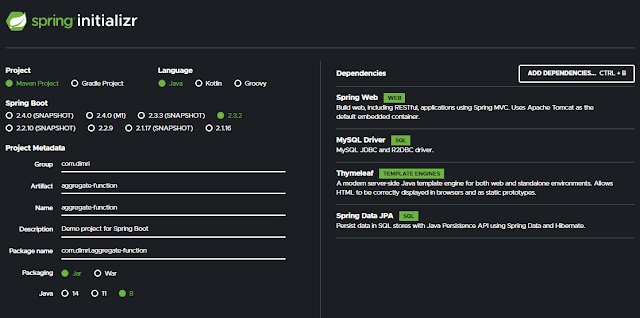Predicate The Functional interface in java
public interface MyFunctionalnterface<T> {
String funPart(T t);
}public class UseFunctional {
public static void main(String [] arg) {
String str =" Functional World !";
MyFunctionalnterface<String> callFun;
callFun= (xyz)-> {
return str + xyz;
};
System.out.println(callFun.funPart(" in java "));
}
}
Some predefined functional interfaces in Java 8. Programmer frequently use Predicate, Consumer, Supplier.
- public interface Predicate<T>
- public interface UnaryOperator<T> extends Function<T,T>
- public interface Function<T,R>
- public interface Supplier<T>
- public interface Consumer<T>
- public interface BinaryOperator<T> extends BiFunction<T,T,T>
- public interface BiFunction<T,U,R>
In Java 8, Predicate is a functional interface, which accepts an argument and returns a boolean value. It is used to apply in a filter for a collection of of objects. abstract method is test(T,t) and return type is boolean. Predicate is defined in java.util.function package
@FunctionalInterface
public interface Predicate<T> {
boolean test(T t);
}Predicate has test method having generic parameter template and return boolean value. this return type is used for testing the condition on collection of object. Main logic is to test condition and return true or false. In the Stream we call the method filter and provide a function implementation. this function implementation is body of test method and it execute inline.
package com.java.example;import java.util.Arrays; import java.util.List; import java.util.stream.Collectors; public class PredicateExamplee { public static void main(String[] args) { List<Integer> lstValue = Arrays.asList(2,4,6,8,9,10,12,14,15,16,19); List<Integer> result = lstValue.stream() .filter(x -> x % 2 == 0 ) .collect(Collectors.toList()); System.out.println(result); // result = [2, 4, 6, 8, 10, 12, 14, 16] } }
Predicate<Integer> testFunction = x -> x % 2 == 0package com.java.example;
import java.util.Arrays;
import java.util.List;
import java.util.function.Predicate;
import java.util.stream.Collectors;
public class FunctionAssignPredicate {
public static void main(String[] args) {
Predicate<Integer> testFunction = x -> x % 2 == 0;
List<Integer> lstValues = Arrays.asList(2,4,6,8,9,10,12,14,15,16,19);
List<Integer> result = lstValues.stream()
.filter(testFunction)
.collect(Collectors.toList());
System.out.println(result);
// result = [2, 4, 6, 8, 10, 12, 14, 16]
}
}Logical conditions AND ,OR,NOT are easy to use inside test method implementation. let's use AND ,OR,NOT condition inside test implementation with filter's test method . We can write two lambda function and pass those lambda function inside the filter methodpackage com.java.example;import java.util.Arrays;
import java.util.List;
import java.util.stream.Collectors;
public class MultipleFilterPredicate {
public static void main(String[] args) {
List<Integer> list = Arrays.asList(3,5,6,7,8,9,15,20); Predicate<Integer> greaterThan = x -> x > 1;
Predicate<Integer> lessThan = x -> x < 10; // here && condition operator between greater and less values
List<Integer> collect = list.stream()
.filter(greaterThan.and (lessThan))
.collect(Collectors.toList()); System.out.println(collect); } // end of main } // end of classwe can implement the OR operator in a similar fashion inside the filter method of stream.
default Predicate<T> negate() {
return (t) -> !test(t);
}
The logical negation operator ( ! ) reverses the meaning of its operand. here we can reverse
the condition with negate method of predicate.package com.java.example;import java.util.Arrays;
import java.util.List;
import java.util.stream.Collectors;
public class NegatePredicateEample{
public static void main(String[] args) {
Predicate<String> nameList = x -> x.startsWith("K");
List<String> list = Arrays.asList("Kailash",
"Harish",
"Jagmohan",
"Avtar",
"Sandeep", "Saurabh");
List<String> collect = list.stream()
.filter(nameList.negate())
.collect(Collectors.toList());
System.out.println(collect);
//Result : [Harish, Jagmohan, Avtar, Sandeep, Saurabh]
} } // end of class
Done ......


Comments
Post a Comment